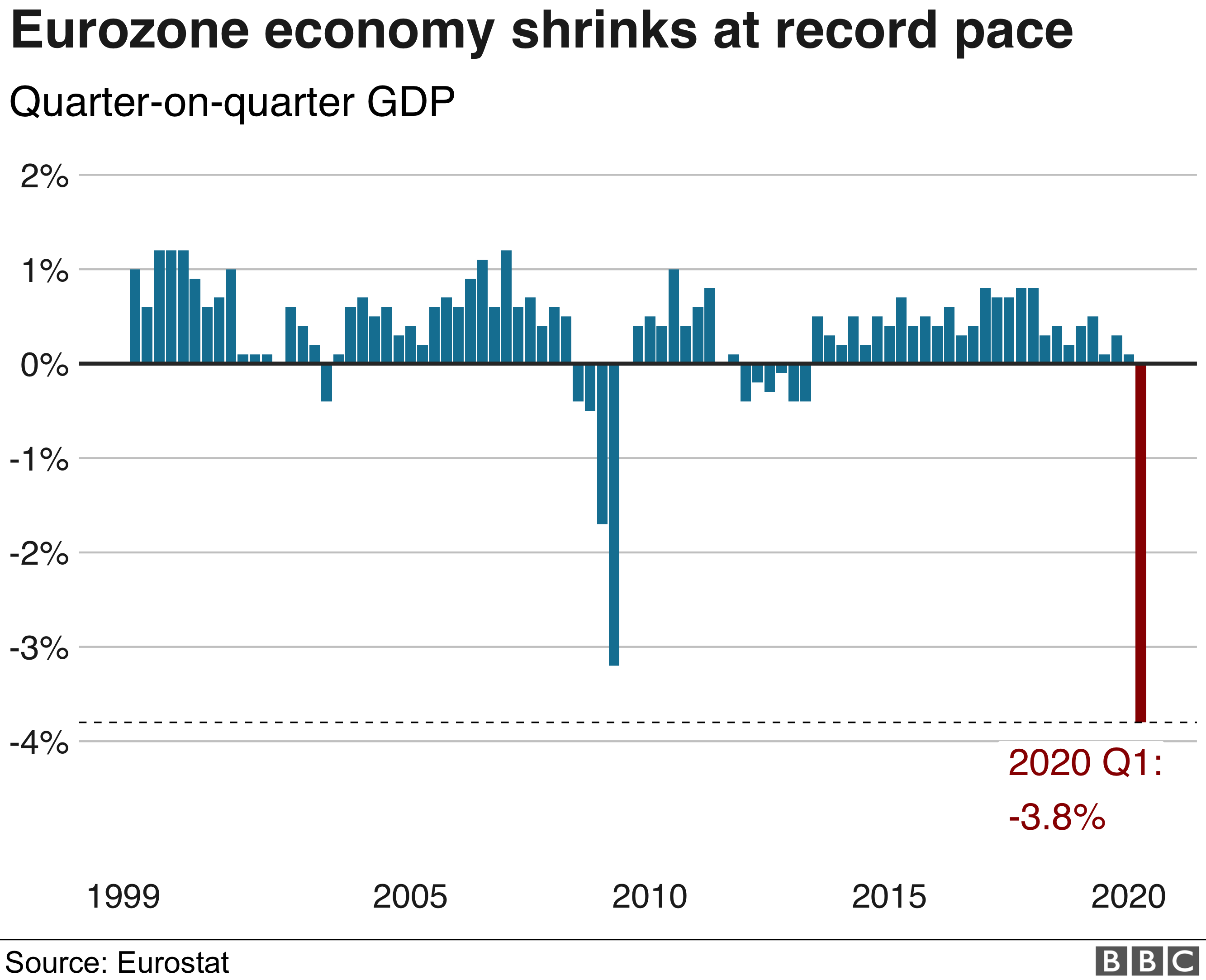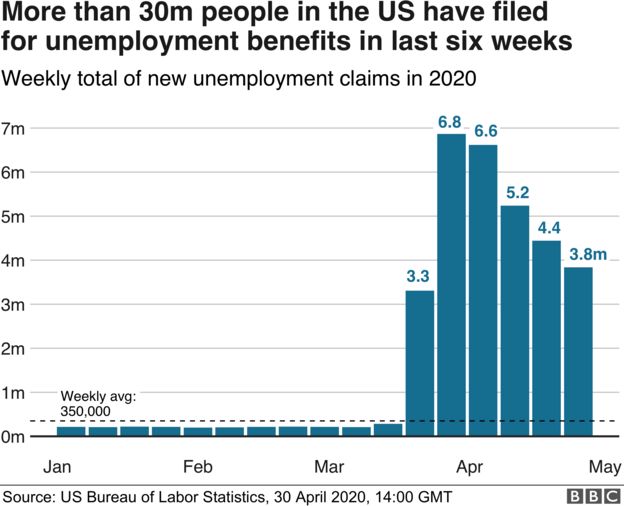The eurozone economy shrank at the sharpest pace on record in the first quarter as the Covid-19 pandemic forced countries into lockdown.
A first estimate of GDP between January and March showed a contraction of 3.8%, worse than during the financial crisis.
Separate figures revealed a steep fall in economic activity in France and Spain over the same period.
In Germany, unemployment has increased though it remains relatively low compared with other nations.

On Wednesday, the US revealed that its economy had suffered its most severe contraction for more than a decade, after GDP shrank at an annual rate of 4.8% in the first quarter of the year.
However, this "annualised" rate implies that the US economy actually contracted by about 1.2% in the three-month period, a less severe contraction than in the eurozone.
On Thursday, figures from the US Department of Labor showed that 3.8 million more Americans filed claims for unemployment benefits last week. That is the lowest weekly rise for a month, but still very high, bringing jobs lost during the pandemic to about 30 million.

'Free-fall'
Andrew Kenningham of Capital Economics called the European news a blizzard of depressing economic data that "confirms that the eurozone economy was in free-fall".
In the case of France, the 5.8% decline in gross domestic product (GDP) was the largest the quarterly series has recorded since it began in 1949.
Two other large economies have published first estimates: Spain saw a contraction of 5.1% while Italy's economy shrank by 4.7%.
The figure for the eurozone as a whole was more moderate, but is still by any standards severe especially for a contraction over just three months.
So far most individual European countries have not published national estimates. That applies to the largest of them, Germany.
But new figures for the German labour market are beginning to show the impact of the pandemic, with the number of people out of work rising by 373,000 in April.
However, the full impact is damped by the country's system of financial help to people put onto shorter working hours, known as Kurzarbeit.
Claus Vistesen of Pantheon Macroeconomics said the news on the Geman labour market was "bad, but it would have been disastrous without Kurzarbeit".
Growth warning
European Central Bank (ECB) President Christine Lagarde said that a sharp downturn in eurozone economic activity in April "suggests that the impact [of the pandemic] is likely to be even more severe in the second quarter."
She warned that eurozone economic growth could fall between 5% and 12% this year, "depending crucially on the duration of the containment measures and the success of policies to mitigate the economic consequences for businesses and workers".
Ms Lagarde added that the ECB was fully prepared to increase to ease the burden of the pandemic, to "as much as necessary and for as long as needed"



Comments
Post a Comment
if you have any doubts. Please let me know